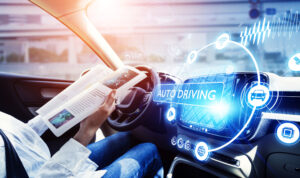Driverless Dilemma: Are We Lab Rats Without Legal Recourse in the Experiment of Autonomous Driving?

In the maze of today’s technological advancements, our society is standing at a crossroads where progress meets safety. The intricate web of autonomous driving technology and legislative accountability is unraveling in front of our eyes, with recent events bringing the conversation into sharp focus.
At the heart of this discussion is a tragic incident involving an Apple engineer, Walter Huang, whose fatal accident in 2018 was attributed to Tesla’s Autopilot feature. This case, culminating in a settlement, has served as a grim reminder of the challenges and responsibilities of pioneering technologies. As with any significant advancement, the march of automation and artificial intelligence within the automotive industry demands that legislative frameworks adapt and evolve.
Despite the rapid pace of technological progress, there is a discernible lag in how the legal system responds, often leaving consumers vulnerable to the shortcomings and potential risks of these new technologies. This gap is particularly evident with autonomous driving, where innovation has surpassed regulation, as seen in the recent controversies enveloping Tesla’s Autopilot feature.
As an oversight body, the National Highway Traffic Safety Administration (NHTSA) has taken significant steps to scrutinize automated driving systems. The agency’s extensive investigations have revealed a startling number of crashes linked to Autopilot, further underscoring the necessity for robust regulation. The NHTSA’s deep dive into more than 956 incidents where Autopilot was reported in use, resulting in over 40 investigations and 23 fatalities, lays bare the urgent need for a safety-first approach to automotive innovation.
Moreover, the insights of Jon McNeill, Tesla’s former president, provided a candid look into the duality of Autopilot’s nature back in 2016. In an email cited by the Wall Street Journal, McNeill acknowledged the ease of use and the risk of overreliance, stating, “I got so comfortable under Autopilot that I ended up blowing by exits because I was immersed in emails or calls.” This seemingly innocuous statement hinted at a broader truth about the seductive comfort of automation, highlighting the fine line between convenience and complacency.
Tesla’s public stance on the matter has been one of advocacy for the safety benefits that Autopilot offers. Their communications emphasize the system’s ability to reduce accidents when compared to conventional driving. However, this has yet to translate into an acceptance of liability for the potential risks. Tesla maintains that Autopilot is an adjunct to a vigilant driver and not a substitute—a point reiterated in their defense during the lawsuit.
But the concern lies in the real-world application of these advancements. When companies like Tesla use real people and actual driving conditions as test beds for their unfinished driverless technology, the question of consumer safety becomes paramount. Robert Sumwalt of the NTSB has expressed apprehension about this approach, stating in a letter to the NHTSA, “Tesla is testing on public roads a highly automated AV technology but with limited oversight or reporting requirements,” and highlighting the “potential risk to motorists and other road users” due to NHTSA’s lenient stance on AV testing oversight.
In a landscape where public roads have become testing grounds for companies like Tesla, and with pointed concerns from NTSB’s Robert Sumwalt about such practices, we’re left to ponder the adequacy of our regulatory frameworks. Sumwalt warns of the inherent risks in Tesla’s current approach, testing highly automated technologies “with limited oversight or reporting requirements.” This scenario draws us to a pressing question: With the potential dangers outlined by regulatory bodies, how will accountability be enforced to protect the public from the risks of unfinished autonomous technologies?
In Florida, the legal landscape for autonomous vehicles is already shaping the roads we travel. Under section 316.85, Florida Statutes, the state permits vehicles to operate without a human driver. This is undoubtedly a significant leap into the future of transportation, highlighting the urgency for thorough safety protocols and laws that can keep pace with such advancements. The reality of driverless cars navigating the streets raises inevitable concerns about safety and accountability, prompting a vital dialogue on how to protect consumers in this new era of autonomy.
This problem is further complicated by legislative proposals from Florida legislators who have sought to grant immunity to operators of remotely controlled vehicles. Such legislative moves could create a legal shield for auto manufacturers, potentially at the expense of consumer protection. This prospect raises alarms about prioritizing industry interests over individual safety, setting a precedent that could ripple through other jurisdictions.
In this evolving landscape, consumer safety cannot merely be an afterthought—it must be the guiding principle that shapes the evolution of our legal systems, ensuring that consumers’ rights are upheld and protected. The public’s ability to recognize the potential hazards of allowing auto manufacturers to innovate without stringent oversight is crucial. The drive for technological advancement must not be allowed to overshadow the need for accountability, especially when public safety is at risk.
Too often, the implications of insufficient oversight remain unseen until they have a direct impact on individuals or their loved ones. This underscores the importance of informed and proactive citizen engagement in shaping the policies that govern auto safety and technological development. With this knowledge, we can collectively guide the trajectory toward a future where innovations like Tesla’s Autopilot and remotely operated vehicles do not overshadow everyday citizens’ fundamental rights and safety.
Share This


